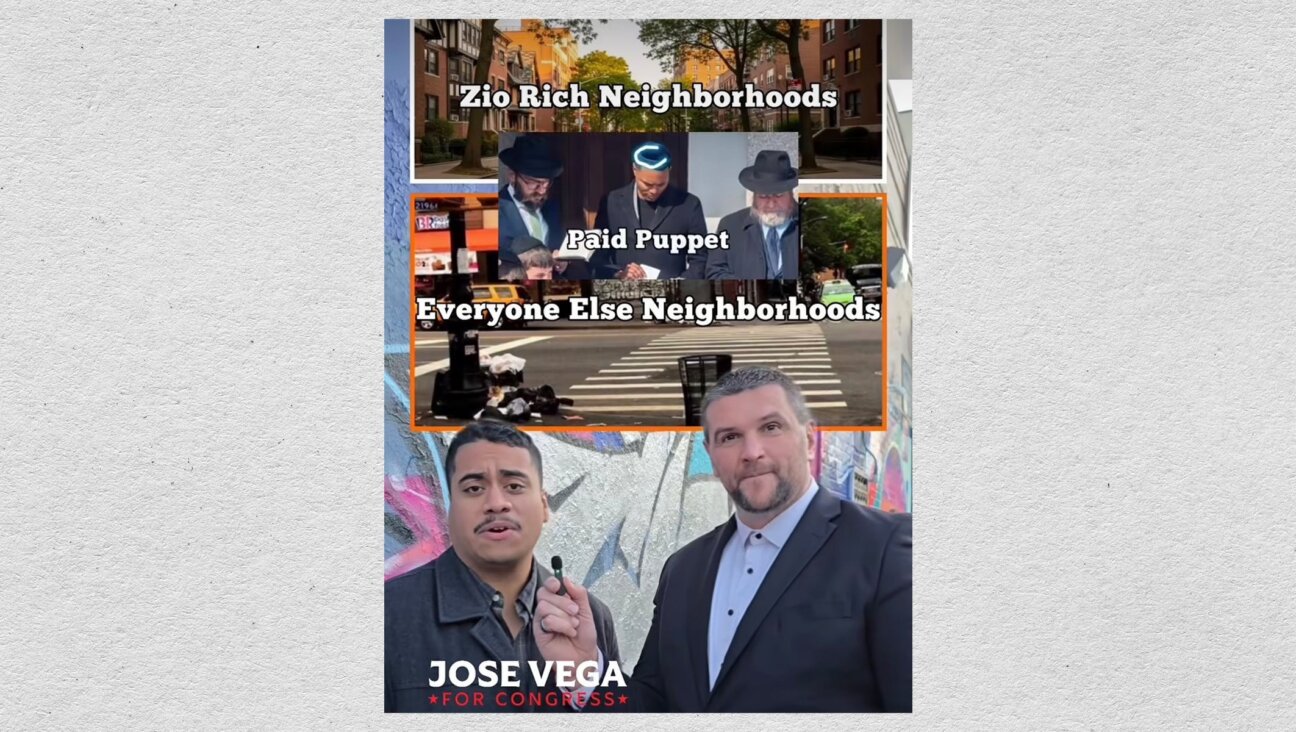Divest Anti-Israel Prejudice From Churches
There is a battle taking place within mainstream Christian churches across America. A small cadre dedicated to the triumph of the Palestinians at the price of the destruction of Israel is trying to influence the Middle East policies of the American Christian community. As a result, Jews and Christians are often undermined as they work together for peace between Palestinians and Israelis.
While Israel leaves Gaza, in a bold step to advance the peace process so that the Palestinians can move one step closer to independence, the Presbyterian Church (USA) responds by threatening Israel with economic sanctions. While Israel builds a security barrier to keep Palestinian terrorists from maiming and killing innocent civilians, the World Council of Churches, Disciples of Christ and the United Church of Christ demand that Israel “tear down the wall” — even though the fence has saved the lives of countless Israelis of all religious faiths, as well as Palestinians who would have died from Israeli countermeasures.
We fight against prejudice and stereotypes. Yet, at the recent United Church of Christ synod in Atlanta, the only pictures of contemporary Jews to be seen were those of Israeli soldiers attacking defenseless children. And in a recent Palestinian Christian publication, a sorrowful Mary dressed in Arab robes is shown holding a lifeless Palestinian Jesus on her lap, an image fostering a new and dangerous theology of Deicide: The Jews murdered our Lord then, and they continue to kill us now.
American Christians who promote these views are deeply intertwined with churches in the Holy Land and with certain radical Palestinian Christian theologians whose language and beliefs they echo. They demonize Israel and prod fellow American Christians to adopt resolutions that actually undermine peace efforts.
How can we distinguish between the Christian radicals who exacerbate violence and anti-Jewish attitudes and those who in voicing criticism, still remain dedicated to the creation of an independent and secure democratic Palestine next to an equally secure Israel?
For starters, by looking at the language used by these ideologues. When the Presbyterian Church declares “the Occupation is the root of the evil” in the conflict between Israelis and Palestinians, it ignores two decades of assault on Israel by Arab neighbors from its founding in 1948 through 1967, wars, terrorist attacks, boycotts and the constant demonization of Jews and Judaism. The root of the conflict is not just about who controls what land but unceasing hatred of Israel, as well.
Language that equates suicide bombers and terrorists with Israeli policies of self-defense are another telling sign. What is incomprehensible to most of us since the September 11 attacks and the bombings in London, Bali and Madrid is that these Christian extremists continue to attack Israel for taking defensive measures that actually protect the lives of its diverse citizenry — Jews, Christians and Muslims.
Statements by national church bodies often profess love of Jews and Israel. But these words come with a one-sided call for a right of return for any Palestinian claiming to have ancestors who once lived in what is Israel. The Palestinian right of return is a code phrase of “one nation, two peoples and three religions.” These Christian radicals claim they are appealing for peace, while the rest of us hear an overt call for the destruction of Israel.
And, by the way, these Christian ideologues never call for the right of Jewish families that have lived hundreds of years in cities holy to Jews, such as Hebron and other parts of the Holy Land, to remain there in peace. They do not call for just compensation or repatriation for the millions of Jews and their descendants who were forced to flee from Arab countries.
There is a great divide between these radical Christian ideologues, who are more at home with the rhetoric and policies of Islamist extremists, and those Christians committed to a negotiated two-state solution that protects both Israelis and Palestinians. Even within the Presbyterian Church (USA), those aware of the divestment campaign oppose it two to one. It is a critical responsibility for the leaders of America’s churches to distinguish between them.
Our hope is that the mainstream Christian churches will not allow a vocal and determined minority that promotes negative attacks on Israel, not to mention destructive policies that fuel violence and conflict, to succeed. Christians and Jews must be partners in a coalition of peace and coexistence.
God does not have only one blessing. As God’s agents, we must work to bring the blessing of peace to all — Palestinians and Israelis, Jews, Muslims and Christians alike. To do less is a sin for which we all will be held accountable.
David Elcott is director of U.S. interreligious affairs at the American Jewish Committee.















